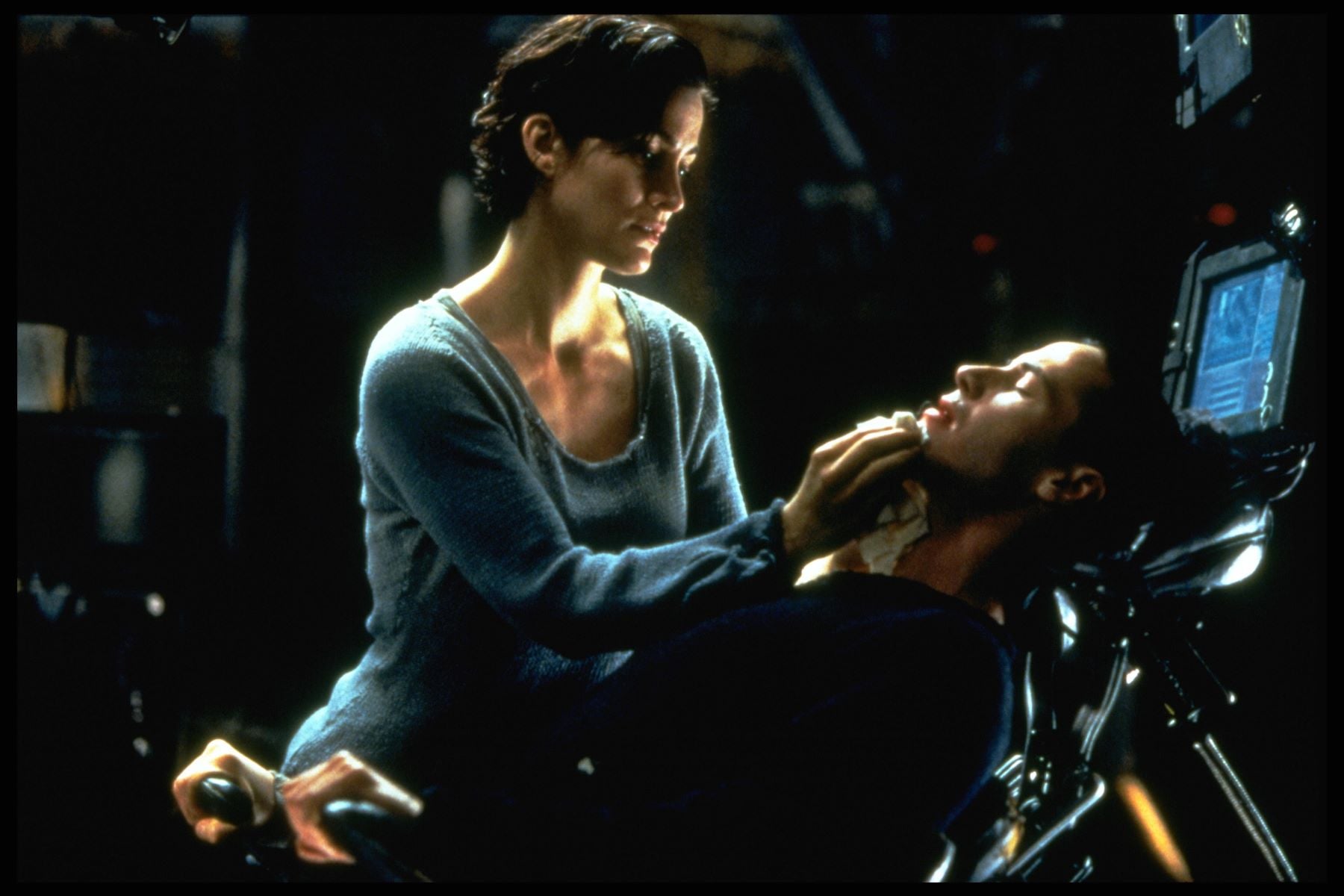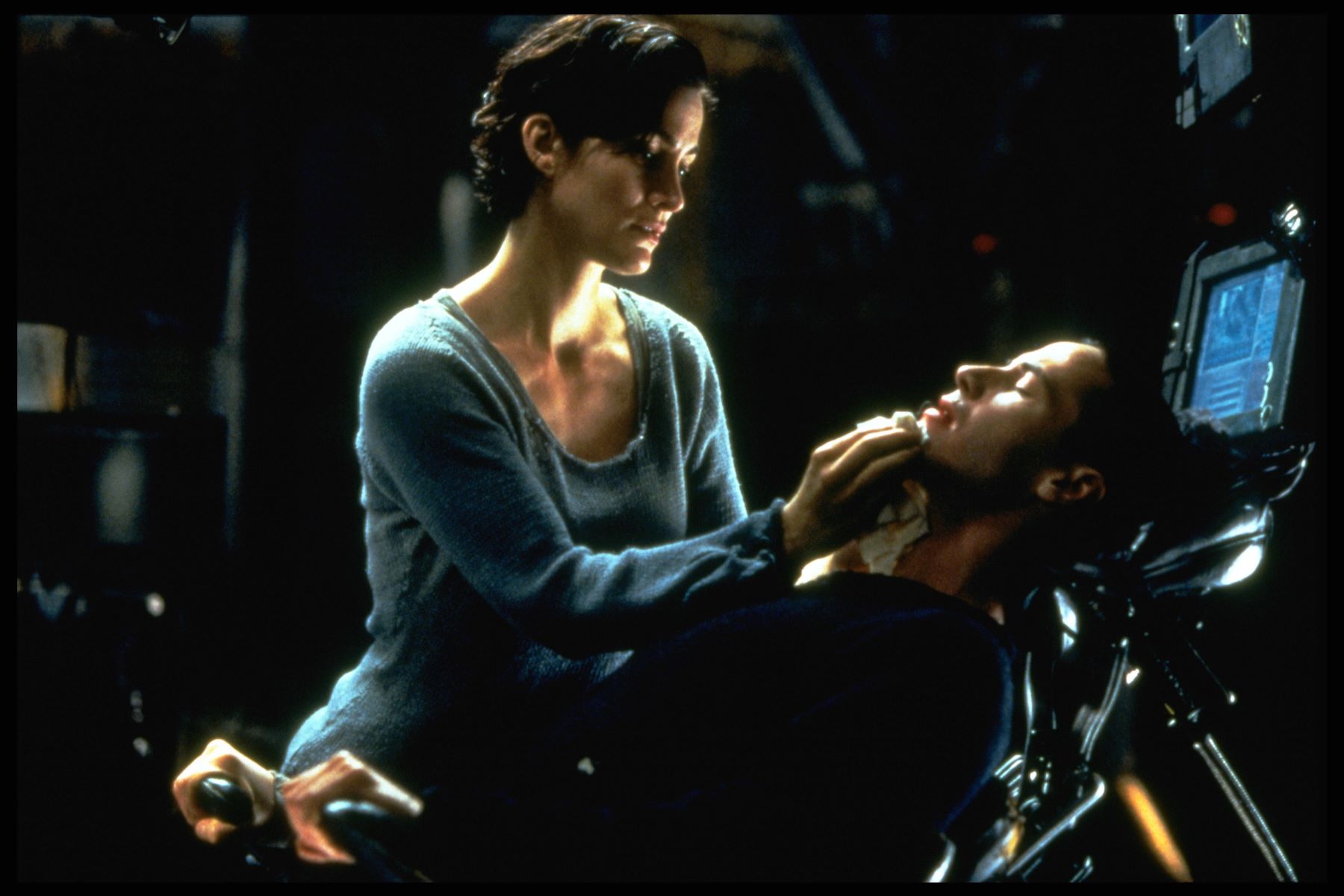
‘The Matrix’ Plothole That Once You Realize, You Can’t Unsee
There were plenty of movies that mixed science fiction and action movies made before The Matrix, some of which are great. However, when The Matrix arrived in theaters in 1999, its impact was so all-encompassing that it made many great films seem prehistoric in comparison. The franchise’s iconic fight scenes are still astounding two decades later, and the big-brain philosophy of the Wachowski sisters was remarkably prescient about where society was headed.
However, even the most canonical movies in history have nits to pick if you look hard enough. Some fans have taken issue with the actions of Cypher (Joe Pantoliano), whose betrayal of the crew on the Nebuchadnezzar creates a pothole by appearing to break the established rules of the world.
‘The Matrix’ has an outsized legacy for all the right and wrong reasons
The Matrix ushered in a new form style of filmmaking that expanded what was possible in a Hollywood blockbuster. The “bullet time” effects the movie mainstreamed were quickly copied by other directors, but none of them could come close to generating the same sense of awe demonstrated by Keanu Reeves, Carrie-Ann Moss, and Laurence Fishburne. Over 20 years later, it still looks like the coolest thing ever put on film. Choreographer Yuen Wo Ping also deserves a ton of credit for making a high level of tactile energy that is increasingly rare in CGI-laden films of today.
However, The Matrix survives in the mind as much for its ideas as its images. The Wachowskis took inspiration from historical thinkers, cyberpunk totems, anime, eastern religions, and their own gender dysphoria to create a world where the highest sectors of power use immoral means to hide the realities of the world and how technology could be the catalyst for people to transcend the limits of their bodies and backgrounds for the greater good.
Unfortunately, for the filmmakers and the rest of the world, that message became corrupted by bad-faith actors who incorporated the metaphor of the blue and red pills into culture wars and personal grievances that completely miss the point of The Matrix. Still, the movie is so good that it mostly rises above the stench of modern discourse.
The Cypher plothole seems glaring, but some defend the choice
Despite much thought going into The Matrix, one story development doesn’t immediately add up.
It revolves around the reveal that Cypher is giving information about Zion and his friends to Agent Smith in exchange for a return to the blue-pilled bliss inside the Matrix. At first glance, his plan doesn’t work according to the rules of this universe. Residents of Zion can only enter the digital world by hacking in with a pirate code. An operator has to stay in reality while the traveler is plugged in by the neck. So, how can Cypher carry out his secret meetings with Agent Smith without anyone else knowing about the scheme?
There’s no obvious piece of information that explains this plothole, but according to Screen Rant, there is a reason why Cypher’s plan checks out. The Wachowskis participated in a chat commentary of The Matrix in a 1999 screening. The duo refers to a scene where Neo goes to talk to Cypher while he’s on the main console, and he reacts by switching off his screen in a panic. Neo shrugs it off and doesn’t mention it again, but the Wachowskis claim that Cypher was writing an automated code to enter and exit the Matrix on his own at the time.
This is a very obscure piece of evidence that most viewers understandably miss, but Cypher’s attempt at betrayal is as logical as the rest of The Matrix.
The franchise has never hit the heights of the first movie again

The Matrix is one of the best movies of the past 25 years. The rest of the franchise is a bit of a mixed bag to most fans of the original. The Matrix Reloaded has some good parts, but the series seemed to be running on fumes by the time The Matrix Revolutions came out, even though it was just a few months later.
The first movie’s success made it inevitable that the franchise would return in some form, and it finally did in 2021 with The Matrix Resurrections.
The movie’s meta-narrative structure is fascinating as it becomes clear that Lana Wachowski agreed to return to the franchise so that she could combat all the ways the themes of The Matrix have been distorted in the years since and make fun of the self-seriousness of that first movie. However, while a refreshing and interesting take, that conceit doesn’t save the rest of Resurrections from crawling toward the finish line as the fourth, and likely final, film in the franchise.


